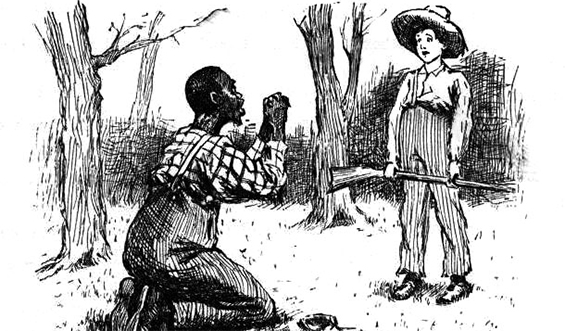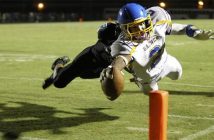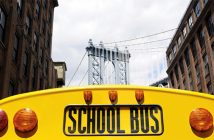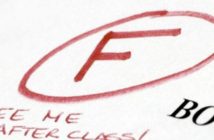
A school in Philadelphia has taken Mark Twain’s “The Adventures of Huckleberry Finn” out of the curriculum after school officials decided that “the community costs of reading this book in 11th grade outweigh the literary benefits,” writes Alison Flood of The Guardian.
The story of Huck Finn, who was introduced in Twain’s “The Adventures of Tom Sawyer,” includes how Huck ran away from his alcoholic father by faking his own death and then met a runaway slave by the name of Jim. The classic American novel was spoken of by Ernest Hemingway, who said that, “all modern American literature comes from one book by Mark Twain called Huckleberry Finn.”
The American Library Association (ALA) says the book, first published in 1884, is one of the most challenged of all time, for the most part because of the profanity and the use of the “N-word.” It was banned first in Concord, Massachusetts in 1885 and was called, “trash suitable only for the slums.” In today’s world, it draws criticism over the frequently used n-word, which appears in the text over 200 times.
One publisher released a 2011 version of the novel that replaced the N-word with “slave.” The purpose was to counter the censorship that has caused influential works of literature to be thrown out of curriculum lists across the world.
Now Friends’ Central School in Montgomery County, according to the Philadelphia Inquirer, has decided to eliminate the novel from its 11th-grade American Literature class. Officials are allowing it to remain on the school’s library shelves.
The principal of the school said:
“we have all come to the conclusion that the community costs of reading this book in 11th grade outweigh the literary benefits”, saying that some students had found the “use of the N-word” to be “challenging”, and that the school “was not being inclusive.”
The school bases its philosophy on the Quaker doctrine that espouses “peaceful resolution of conflicts, seeking truth, and collaboration.”
The school’s principal said he did not feel that the school was engaging in censorship, but believed that the school was listening to students’ opinions.
When the book was first published, says Justine McDaniel, reporting for the Philadelphia Inquirer, it was criticized for portraying the friendship of a white boy and a black man. Now it is being censored for almost the exact opposite reason, which is the often used n-word and charges of its racist characterization of black people.
The book was the fifth most challenged book in the US in the 1990s and 14th in the decade of the 2000s, reports the ALA.
“We don’t shy away from teaching it,” said Jim Miller, dean of students and an English teacher at Friends Select School. “We see it as a very important opportunity to educate kids further about the use of language, especially the use of the N-word.”
Miller said the classes in which Finn is taught also include a unit on the n-word which encourages students to take a critical look at history and language.
Deborah Caldwell-Stone, deputy director of the American Library Association’s Office for Intellectual Freedom, which tracks challenges to books, says her office sees the removal of the book from a literature class as a kind of censorship because there are things to be learned from the work.
Friends’ Central School will assign Narrative of the Life of Frederick Douglass to replace the work by Twain.




